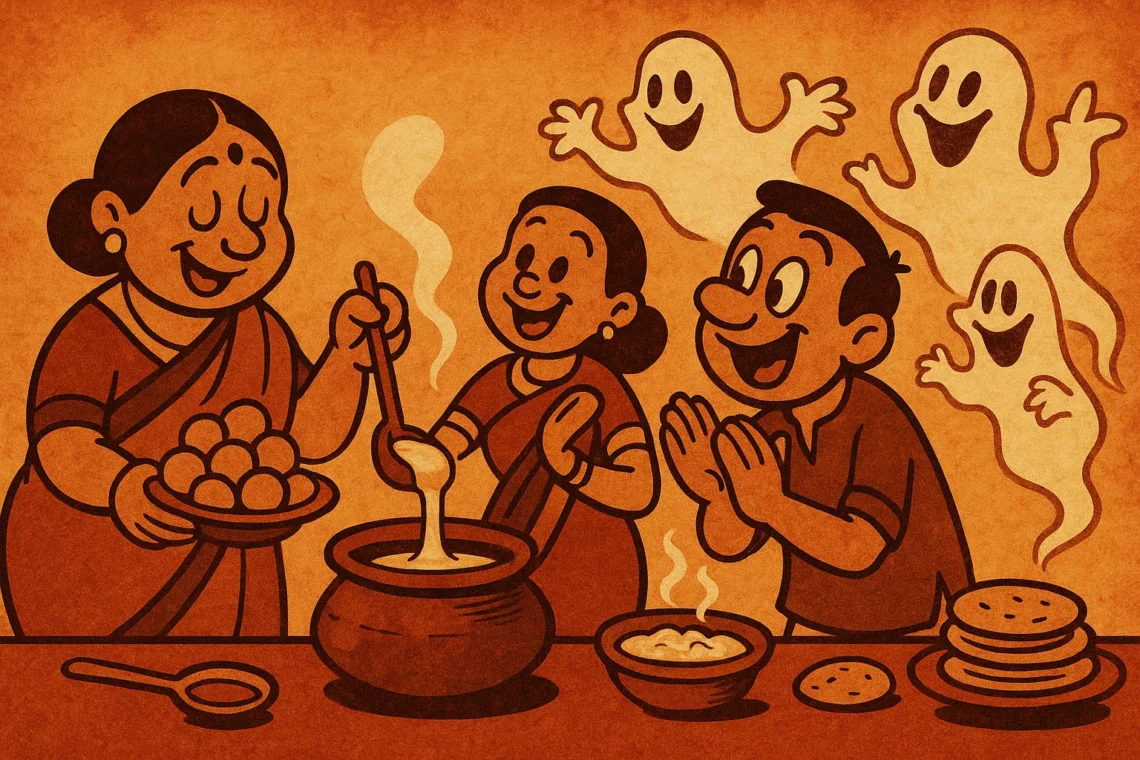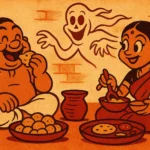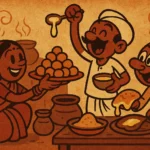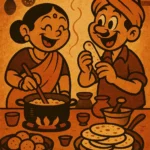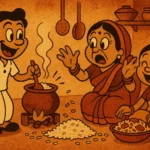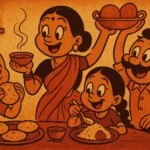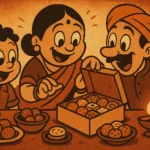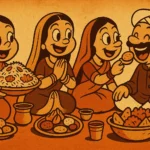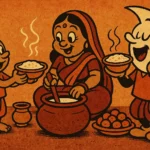Every culture has its ghosts. Ours just happen to smell like dessert.
I was ten when I first heard it—the story of the pret who haunted the upstairs flat not with chains or howls, but with the unmistakable aroma of ghee. Thick, nutty, golden. The kind that clings to your clothes and lingers in the folds of steel utensils. No one had seen her, of course, but late at night, when the building was quiet and the TV static had settled, neighbors swore they smelled besan roasting in hot ghee. And no one was cooking.
She Used to Make Laddoos
The story, as passed down through aunties on balconies and whispered at the milk shop queue, went like this: she was a widow who made the best sweets in the neighborhood. During festivals, people lined up outside her door for her special mohanthal—dark, dense, perfect. She had no children, no relatives, just a giant brass kadhai and the devotion of someone who found peace in slow cooking. When she died, the flat stayed locked. But the smell? The smell stayed on.
Kids claimed to hear the clink of ladles. One uncle said he found melted ghee on his doormat. And once, during Diwali, someone swore they saw steam rising from her old window, even though the house had no electricity. No one was scared. Just… curious. Maybe even comforted. “She just wants someone to offer the prasad,” one lady said. “Someone light a diya, that’s all.”
The Domestic Afterlife
Indian ghosts don’t always rattle doors. Sometimes they fry papads. Or make pickles. Or water tulsi plants that no one remembers placing on the windowsill. Our spirits, like our ancestors, don’t know how to rest if the house is dusty and the kitchen is cold. They’re less interested in revenge and more in recipes. If your bathroom mirror fogs up and you catch a whiff of cardamom? It’s probably someone checking if you remembered to make kheer on Sharad Purnima.
Ghee is their signature scent. Because nothing says unfinished business like half-made halwa.
Why We Don’t Mind
In some ways, ghosts who smell like ghee are welcome. They’re not intruders—they’re reminders. That someone stood in this kitchen before you, stirring patiently, feeding others, leaving behind a fragrance that outlasts memory. Ghee, after all, doesn’t just scent a space. It sanctifies it. And if that scent lingers long after the body has left, who are we to say the soul hasn’t?
My nani used to say, “The house that smells of ghee is never truly empty.” She meant it metaphorically. But also, maybe, not.
The Science, If You Must
Skeptics will say it’s just residual aroma soaked into the walls. That ghee clings. That old flats have bad ventilation. Sure. That’s true. But science doesn’t explain why the smell shows up only on festival nights. Or only when someone talks about her. Or why it makes you feel watched—but not in a bad way. In a way that says, “You added too much sugar. I wouldn’t have.”
I Smelled Her Once
Years later, while frying sooji in my Austin apartment, the smell hit me—warm, toasty, ancient. And for a second, I felt it. Her presence. Not spooky. Just… invested. Like she wanted to make sure I browned it just right. I lowered the flame, added a little more ghee, and whispered, “Okay, okay, I know.”
Because some ghosts don’t haunt. They help. They stir. They supervise.
And if they smell like ghee, honestly? Let them stay.
Born in Mumbai, now stir-frying feelings in Texas. Writes about food, memory, and the messy magic in between — mostly to stay hungry, sometimes just to stay sane.

